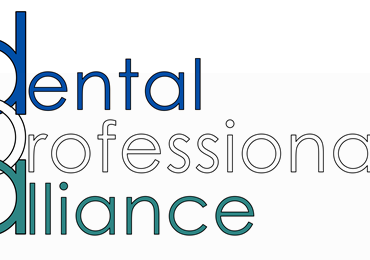Tax avoidance: don’t get caught out
Anyone who has spent a cold dark evening in late January doing a self-assessment tax return will tell you that it can be a little bit like, well, pulling teeth. It’s why many people work through an agency or umbrella company to help them keep track of what they’re earning and the tax they need to pay.
Around 40% of the dental professionals we surveyed in 2020 told us they were self-employed or working as a freelancer or locum. That’s around 46,000 dental professionals.
Providing NHS services through dental contracts and other factors means that working as a self-employed associate or contractor is common in dentistry. But being employed in this way may mean you’re unknowingly involved in a tax avoidance scheme. It’s important you understand the risks, and the steps you can take to make sure you don’t get caught out.
What is tax avoidance?
Tax avoidance is when people bend the rules of the tax system to try to pay less tax than they should. But if you join a tax avoidance scheme you could end up having to pay the tax due, and may need to pay interest and penalties as a result.
Tax avoidance is not a criminal offence, and we will not take an interest in your dealings with HMRC, but it’s important to understand that you are responsible under UK law for paying the correct amount of tax. Even if you’ve appointed someone to deal with your tax affairs or you’ve been given bad advice, the responsibility remains with you.
Jonathan Smith, Director of Counter Avoidance, HMRC, explains:
“Tax avoidance schemes are marketed as clever ways to pay less tax. They rarely work in the way that the promoters claim, and users can end up with large tax bills, sometimes having to pay far more than the tax they tried to avoid, including interest and penalties.
“We will continue to use all powers at our disposal to act against those who design and sell such schemes.
“Anyone who thinks they may be involved in a tax avoidance scheme, should contact us as soon as possible to get help.”
How can you spot a tax avoidance scheme?
Here are some of the things you should watch out for:
- Any scheme that allows you to keep more of your income than you would expect, with low or no deductions for Income Tax and National Insurance contributions (NICs).
- Some, or all of the payments you get are said to be “non-taxable”. These could be described as loans, annuities, bonuses, or shares. These payments are no different to normal income and you will need to pay Income Tax and NICs on them.
- Schemes you are told are safe and compliant or approved by HMRC – this will not be true – as HMRC never approves avoidance schemes.
- Only a part of the total payments you receive may be taxed as income. If you are employed, this is usually a national minimum wage amount.
- Being offered a choice between a standard or “enhanced” pay scheme. The enhanced version is likely to be tax avoidance.
- Being asked to sign more than one contract or agreement.
- Your employment contract or agreement does not state how your income will be paid, or provide you with a breakdown of all your deductions.
- You’re being offered a “cash bonus” if you recommend the scheme to a friend.
Find out more
If you recognise any of the telltale signs of tax avoidance schemes, you can carry out some additional checks to make sure you are paying the right amount of tax. You can use the use the interactive risk checker to see if your current contract could involve tax avoidance.
You might also want to check the list of tax avoidance schemes that have been named by HMRC to help you stay clear of current schemes, and what you should do if you need to get out of a tax avoidance scheme. The list is not exhaustive, so if an avoidance scheme or promoter isn’t shown this does not mean that they are in any way approved by HMRC. HMRC does not approve tax avoidance schemes for use.
The impact of avoidance is real and could be serious, so please don’t ignore the problem. People are often taken in by the financial benefits on offer, including Tanya, a nurse who was encouraged to get into a tax avoidance scheme, which left her with a large and unexpected tax bill.
HMRC wants to stop people being drawn into tax avoidance schemes and to help them to leave such schemes if they believe they might be caught up in one.
Remember, if it looks too good to be true, it almost certainly is.
Find out more about tax avoidance and HMRC’s Don’t Get Caught Out campaign.
You can also find out further details about the schemes that HMRC believes are being used to avoid paying tax due in HMRC guidance published August 2022.
 eGDC
eGDC














